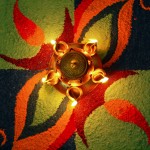Now we are water.
Of exactly the same substance,
But with different freedoms.”
–Ruth Parks, from Fishing in the Styx
We are all being called upon to fulfill our own Divine assignment. I believe this is true now to a greater extent and with greater capacity than ever before on this planet.
What does this mean? And how do I go about balancing daily spiritual practice while living IN the world—without the practical physical and spiritual benefit, support, and protection afforded those who live a cloistered life? How can I live, move and have my being In the world without being Of the world? We have each had to develop strategies for clearing our own pathway through the jungle. And none of us have a thoroughly cleared path, so we either carry on or take the easy way out and give up entirely.
When I began to contemplate these ideas, I started off by making a list of what I called “Devotional Elements.” This is the list I made—devotional elements I have used and/or tried out. Feel free to comment with other items to be incorporated into a larger list.
Elements of a Devotional Life
- Altar
- Sacred Space
- Items that speak to the heart
- Silence
- Prayer
- Meditation
- Self Knowledge
- Commitment
- Choice
- Sacred Ritual
- Energetic Support – Environment
- Balance of physical, mental, emotional and spiritual elements of being human in the present moment
- Candles
- Fragrance – Oils or Incense or Flowers
- Music
- Color
- Being Present with Self – or others
Relationships:
- With God
- With Self
- With Family
- With Community – even globally
- With Animals
- With Plants
- With Minerals
- With the Earth – and her Environment
Living a devotional life without being a monk – in a way that balances our devotional practices with the duties/obligations of being householders – is a topic that will be more edifying and supportive to all of us who struggle with these questions if we can consider and benefit from the combined contributions of a number of readers.
In that spirit, these are the questions that came to me as I contemplated this act of finding balance. If my questions strike a chord in you, please take a few moments to jot down your own thoughts as a comment. Choose a question or questions that you have clear insight about already or one that you are struggling with. And please feel free to contribute your own questions as well.
1. What is your understanding of a “devotional life”? Devotion to whom or to what?
2. What purpose is/was served by living a monastic life? Is the life of a wandering sadhu or a life spent in service in a monastery or ashram more or less complicated and challenging than the “normal” life (known in Yoga as the path of the householder)?
3. Is it true that we can be more holy, more spiritually devoted to God if we remain unmarried? Why or why not?
4. What do you/would you include in your daily and/or weekly schedule to live a devotional life? Please be specific (ex. Ritual, candles, sacred music, readings, prayer, meditation, group gatherings, etc.) and include as many elements as you typically use.
5. Would you say soul companions or fellowship with others who practice your faith is an important—or even indispensable—part of your living a devotional life outside a monastery? Or do you enjoy a self-sufficient connection with the experience of devotion?
6. What brings you daily experience of soul connection to God?
Ex. Self study, prayer, meditation, being outdoors surrounded by nature, family time, music or lifting your voice in songs of praise, experiencing beauty in unexpected moments, overwhelming moments of gratitude for simple pleasures, insights or realizations or new awarenesses . . .others?
7. What if the accoutrements of your devotional rituals or practices were suddenly taken away? How would that change your approach to devotional action or practice?
8. What distracts you or interrupts you from having a devotional life? Which of these distractions or interruptions would you not have to deal with if living in an ashram or monastery?
9. Would you agree with the yogic teaching that following the path of the householder is, for the spiritual seeker, the most difficult path of union with/connection with God?
10. What does your self judgment contribute to (or take away from) your devotional time?
11. What are your excuses when you fail to set aside dedicated time for pursuing your devotional life?
12. Do you hold your private time with God—your devotional life close to your heart? Or do you broadcast your personal spiritual experiences to convert others to your way of worship? What pitfalls or benefits exist that convince you of your answer?
13. Do you want to read about God or do you want to experience God? Does this vary from day to day?
14. To whom or to what is your highest allegiance?
15. Do your beliefs correspond with the concept of original sin or original goodness?
Bonus questions: If you choose to practice random acts of kindness and senseless beauty, could this be considered a part of your devotional life?
If you work in your garden through your hands and your heart, could this be considered a part of your devotional life?
What other ways of serving do you practice without expectation of recognition or reward—without attachment to the fruits of your actions?
These are only a few of the possible questions we could ask ourselves and contemplate as an exercise in swadhyaya or what Socrates said was one of his two key teachings: “Know thyself.” They are not intended to bring up self judgment but to illuminate self knowledge. Our answers will range from the superficial to the profound. And they will probably differ today from what we may have thought 10 years ago or 10 years from now. As with anything, what we receive from the effort depends upon what we bring to it.
For many years I have started my devotional prayer and meditation time with this declaration, which I learned from Father A.A. Taliaferro in 1983. It speaks deeply to my heart each and every time I speak it to myself inwardly and silently:
“The children of God are One, and I am one with them. I seek to love, not hate. I seek to serve and not exact due service. I seek to heal, not hurt. Let pain bring due reward of light and love. Let the soul control the outer form and life and all events and bring to light the love that underlies the happenings of the time. Let vision come, and insight. Let the future stand revealed. Let inner Union demonstrate and outer cleavages be gone. Let love prevail. Let all men love.”












